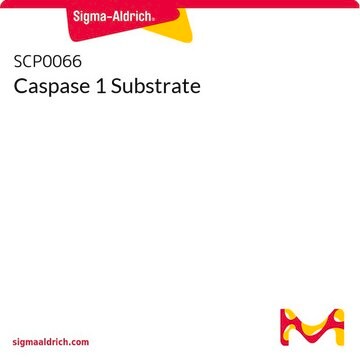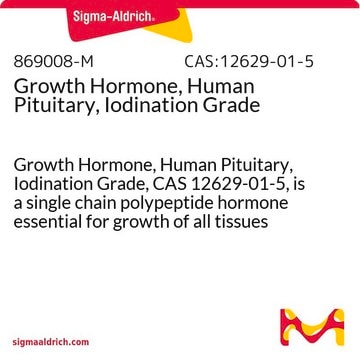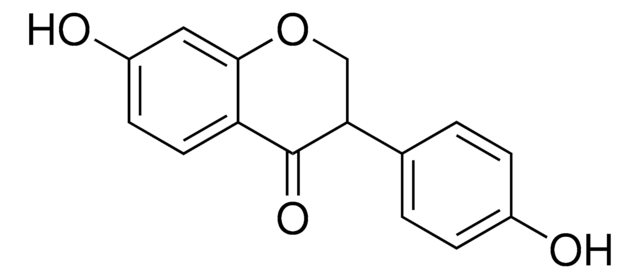SCP0162
[His1,Nle27]-Growth Hormone Releasing Factor 1-32 amide human
Sign Into View Organizational & Contract Pricing
All Photos(1)
About This Item
Empirical Formula (Hill Notation):
C159H265N51O46
Molecular Weight:
3627.12
UNSPSC Code:
12352209
NACRES:
NA.32
Recommended Products
Assay
≥95% (HPLC)
form
lyophilized
composition
Peptide Content, ≥70%
storage condition
protect from light
storage temp.
−20°C
Amino Acid Sequence
His-Ala-Asp-Ala-Ile-Phe-Thr-Asn-Ser-Tyr-Arg-Lys-Val-Leu-Gly-Gln-Leu-Ser-Ala-Arg-Lys-Leu-Leu-Gln-Asp-Ile-Nle-Ser-Arg-Gln-Gln-Gly-NH2
Application
Growth Hormone Releasing Factor (GHRF) is an amino acid peptide that induces the release of growth hormone via GPCR receptor GHRH-R. N-terminal fragments and modified fragments are used to study the biological roles of GHRF.
Certificates of Analysis (COA)
Search for Certificates of Analysis (COA) by entering the products Lot/Batch Number. Lot and Batch Numbers can be found on a product’s label following the words ‘Lot’ or ‘Batch’.
Already Own This Product?
Find documentation for the products that you have recently purchased in the Document Library.
T M Kubiak et al.
Journal of medicinal chemistry, 36(7), 888-897 (1993-04-02)
In order to prepare GRF analogs with high activity in vivo, a strategy was undertaken to stabilize the peptide to dipeptidylpeptidase IV (DPP-IV), a protease found in plasma which inactivates native human and bovine GRF by cleavage of the Ala2-Asp3
A M Felix et al.
International journal of peptide and protein research, 46(3-4), 253-264 (1995-09-01)
Conditions have been developed for the site-specific pegylation (NH2-terminus, side-chain and carboxy-terminus) of a potent analog of growth hormone-releasing factor, [Ala15]-hGRF(1-29)-NH2. These pegylated peptides were prepared by solid-phase peptide synthesis using the Fmoc/tBu strategy, and were fully characterized by analytical
R M Campbell et al.
Peptides, 15(3), 489-495 (1994-01-01)
Native human GRF(1-44)-NH2(hGRF44) is subject to biological inactivation by both enzymatic and chemical routes. In plasma, hGRF44 is rapidly degraded via dipeptidylpeptidase IV (DPP-IV) cleavage between residues Ala2 and Asp3. The hGRF44 is also subject to chemical rearrangement (Asn8-->Asp8, beta-Asp8
Y Arsenijevic et al.
Endocrinology, 121(4), 1487-1496 (1987-10-01)
The ability of human (h)GRF-(1-29)NH2 to stimulate GH secretion was studied in cannulated adult rats. In order to suppress endogenous GRF secretion and the inhibitory action of hypothalamic somatostatin (SRIF), rats were anesthetized with sodium pentobarbital. Intravenous administration of hGRF-(1-29)NH2
Our team of scientists has experience in all areas of research including Life Science, Material Science, Chemical Synthesis, Chromatography, Analytical and many others.
Contact Technical Service



![[D-Ala2]-Growth Hormone Releasing Factor 1-29 amide human](/deepweb/assets/sigmaaldrich/product/images/425/958/5625d4d1-aa4a-42c0-a2f9-ff450404f2fe/640/5625d4d1-aa4a-42c0-a2f9-ff450404f2fe.jpg)




